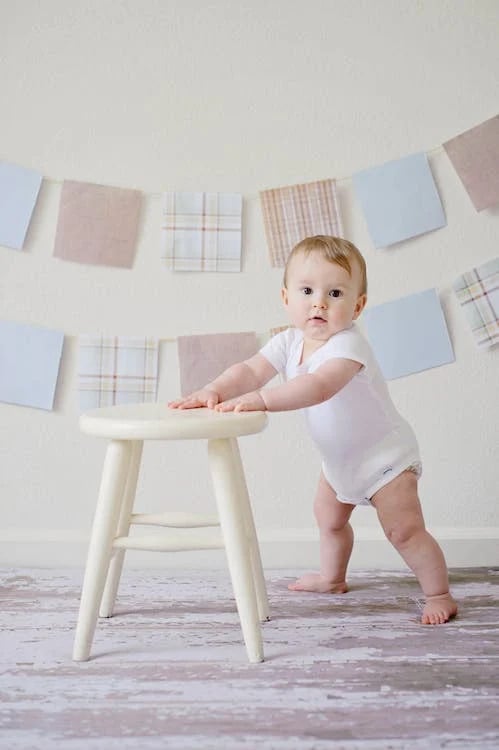🌟Little Hands, Big Learning: Why Play is the Secret Ingredient to Early Childhood Growth
 🌟Little Hands, Big Learning: Why Play is the Secret Ingredient to Early Childhood Growth
🌟Little Hands, Big Learning: Why Play is the Secret Ingredient to Early Childhood Growth
Why Is Play the Heart of Early Learning?
When you walk into a #preschool #classroom filled with blocks, #puzzles, and laughter, you might think the children are “just #playing.” But play is the serious work of childhood — it’s how young minds explore the world, make sense of their experiences, and build essential life skills.
Through play, children #develop problem-solving abilities, creativity, and emotional understanding. When a child builds a tower and it #falls, they learn resilience. When they role-play “restaurant,” they’re building social awareness, communication skills, and imagination — all without a worksheet in sight.
How Does Play Build the Brain?
Neuroscientists have discovered that play literally shapes the brain. Every time a child #pretends, explores, or experiments, neural pathways strengthen. For example, stacking blocks teaches spatial reasoning, while pretend cooking introduces sequencing and counting. These #early experiences are the foundation for future academic success.
Educators and #parents can support this #growth by providing open-ended materials — items that can be used in many ways. Loose parts, sand, paint, and dress-up clothes encourage creativity and independent thinking. The goal isn’t perfection; it’s discovery.
If you’re an #educator designing #playful environments, the Curriculum Planning course on ChildCareEd can help you create engaging, #developmentally-appropriate #lesson-plans that integrate play into every learning moment.
What Types of Play Help Children Thrive?
Not all play looks the same — and that’s a good thing!
-
Sensory play (like water tables or finger painting) helps children process the world through touch, smell, and sound.
-
Dramatic play (like pretending to be a firefighter or doctor) builds #empathy and storytelling skills.
-
Constructive play (like building with Legos) #develops fine motor skills and spatial awareness.
-
Physical play (running, climbing, dancing) boosts coordination and confidence.
Each type of play meets a different developmental need. A balanced classroom — or #home environment — offers opportunities for all of them.
And for fresh ideas, don’t miss Play, Explore, Grow: Fresh Curriculum Ideas to Spark Joy in Your Preschool or Daycare.
Can Play Really Teach Academic Skills?
Absolutely. Play lays the groundwork for reading, #math, and science long before formal instruction begins. When children count toy cars, they’re learning one-to-one correspondence. When they narrate a pretend adventure, they’re practicing sequencing and vocabulary.
Structured academic drills too early can actually limit curiosity. By trusting the natural process of play, we help children develop intrinsic motivation — a lifelong love of learning.
Educators looking to balance #safety and #freedom can explore the 1,2,3, Eyes on Me: Classroom Safety course to ensure children’s play remains joyful and safe.
For practical support, explore our Lesson Plan Template (Birth to Five) or Sample Weekly Lesson Plan: Infant-Toddler.
How Can Parents Encourage Play at Home?
You don’t need fancy toys or technology to promote play. Try:
-
Unplugged afternoons: Give your child free time #outdoors. Nature is the best #playground!
-
Everyday play: Turn chores into games — sorting laundry by color or counting spoons while setting the table.
-
Family role-play: Let your child #lead a pretend restaurant or school. Follow their imagination.
The key is to join in without taking over. Ask questions, notice details, and celebrate creativity.
Why Does Play Matter for Emotional Well-Being?
Children #express feelings through play long before they can verbalize them. A child who “fixes” a stuffed animal may be processing empathy or a memory of being helped. Play gives children a safe outlet for exploring emotions and building resilience.
Educators can support this emotional growth by fostering positivity and self-regulation. The Classroom Positivity course from ChildCareEd offers strategies for creating joyful, affirming environments where children feel valued and confident.
How Can Educators Advocate for Play-Based Learning?
It’s easy for play to be overlooked in favor of academic benchmarks, but #early-childhood professionals can lead the way in reminding others that play is learning. Share research, document children’s progress through play portfolios, and educate families on its importance.
When we elevate play, we elevate childhood itself — honoring curiosity, laughter, and growth as the true goals of #early-education.
✨ Play is powerful. Whether you’re a #teacher, parent, or caregiver, remember: every block tower, puppet show, and sandbox adventure builds skills for life.
Ready to learn more? Explore these courses to deepen your impact:
💛 For more #early-learning inspiration and tips, follow ChildCareEd on Instagram today!
- Lesson Planning for Infants and Toddlers
- Tiny Hands, Big Dreams: Fostering Creativity in Preschoolers
- 🌍Little Explorers: Bringing Nature Into the Early Learning Classroom
- 🎈 Better Together: Why Little Friends Make a Big Difference in Early Childhood
- 🌟Little Hands, Big Learning: Why Play is the Secret Ingredient to Early Childhood Growth
- How Can We Turn Big Feelings Into Learning Moments?
- 🍎 How Can Healthy Habits in Child Care Shape a Child’s Future?
- 🚩👶 What Are the Red Flags in Infant Development Every Educator Should Know?
- How Continuing Education Helps Child Care Providers Advance Their Careers
- Typical and Atypical Meaning in Child Development (Ages 0–5)
- Language Development Milestones in Early Childhood
- Little Bites, Big Learning: Nutrition Month in Child Care
- Creating a Positive Learning Environment: Positive Guidance That Works